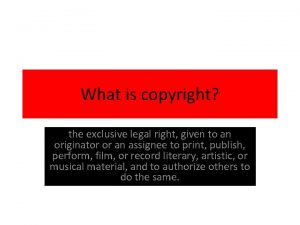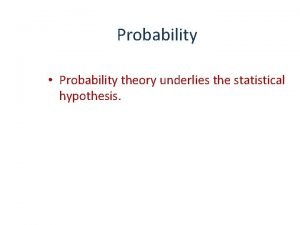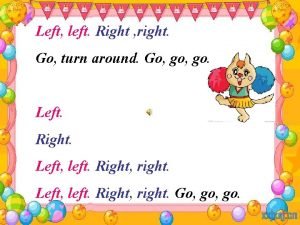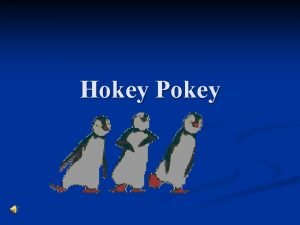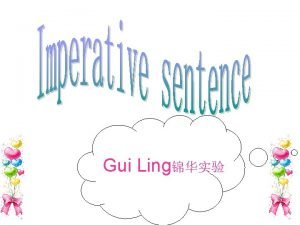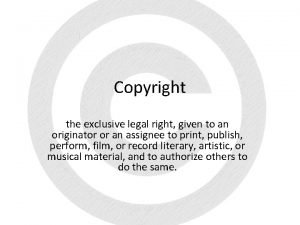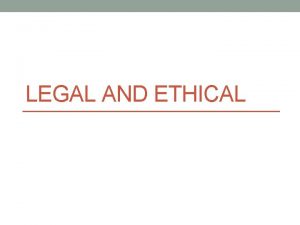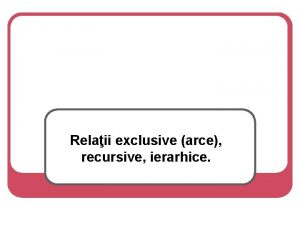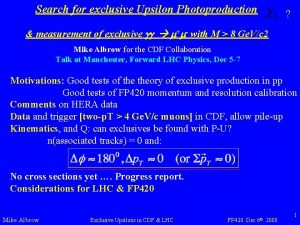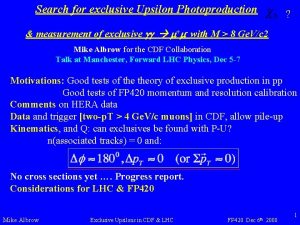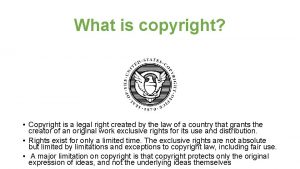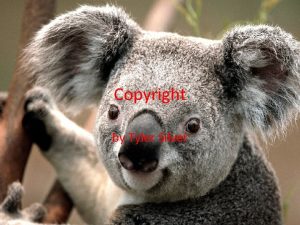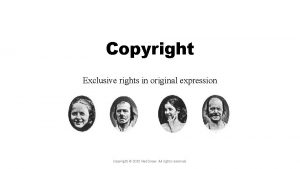What is copyright the exclusive legal right given












- Slides: 12

What is copyright? the exclusive legal right, given to an originator or an assignee to print, publish, perform, film, or record literary, artistic, or musical material, and to authorize others to do the same.

What works are protected by copyright? • • • Copyrightable works include the following: literary works. musical works, including any accompanying words. dramatic works, including any accompanying music. pantomimes and choreographic works. pictorial, graphic and sculptural works. motion pictures and other audiovisual works. sound recordings. architectural works.

What works are not protected by copyright? • Works that have not been fixed in a tangible form of expression (for example, choreographic works that have not been notated or recorded, or improvisational speeches or performances that have not been written or recorded) • Titles, names, short phrases, and slogans; familiar symbols or designs; mere variations of typographic ornamentation, lettering, or coloring; mere listings of ingredients or contents • Ideas, procedures, methods, systems, processes, concepts, principles, discoveries, or devices, as distinguished from a description, explanation, or illustration • Works consisting entirely of information that is common property and containing no original authorship (for example: standard calendars, height and weight charts, tape measures and rulers, and lists or tables taken from public documents or other common sources)

Who owns a copyright in a work? • The copyright in a work of authorship immediately becomes the property of the author who created it at the moment it is put into fixed form. No one but the author can claim copyright to the work, unless the author grants rights to others in a written agreement (such as to the author's publisher or record company). Usually, you can tell who the author of a work is -- the person who created it. But sometimes, it is not quite that easy.

fair use? • (in US copyright law) the doctrine that brief excerpts of copyright material may, under certain circumstances, be quoted verbatim for purposes such as criticism, news reporting, teaching, and research, without the need for permission from or payment to the copyright holder.

What are “derivative works”? • A derivative work is a work based on or derived from one or more already exist- ing works. Common derivative works include translations, musical arrange- ments, motion picture versions of literary material or plays, art reproductions, abridgments, and condensations of preexisting works.

What is a “royalty”? • a sum of money paid to a patentee for the use of a patent or to an author or composer for each copy of a book sold or for each public performance of a work.

What is copyright infringement and what are the consequences? • Copyright infringement is the act of violating any of a copyright owner’s exclusive rights granted by the federal Copyright Act. There are three elements that must be in place in order for the infringement to occur. • • The copyright holder must have a valid copyright. The person who is allegedly infringing must have access to the copyrighted work. The duplication of the copyrighted work must be outside the exceptions. • The legal penalties for copyright infringement are: • • Infringer pays the actual dollar amount of damages and profits. The law provides a range from $200 to $150, 000 for each work infringed. Infringer pays for all attorneys fees and court costs. The Court can issue an injunction to stop the infringing acts. The Court can impound the illegal works. The infringer can go to jail.

When do I need permission to use works? • Obtaining copyright permission is the process of getting consent from a copyright owner to use the owner’s creative material. Obtaining permission is often called “licensing”; when you have permission, you have a license to use the work. Permission is often (but not always) required because of intellectual property laws that protect creative works such as text, artwork, or music. (These laws are explained in more detail in the next section. ) If you use a copyrighted work without the appropriate permission, you may be violating — or “infringing” — the owner’s rights to that work. Infringing someone else’s copyright may subject you to legal action. As if going to court weren’t bad enough, you could be forced to stop using the work or pay money damages to the copyright owner.

How do I obtain permission to use a work? Determine if permission is needed. Identify the owner. Identify the rights needed. Contact the owner and negotiate whether payment is required. • Get your permission agreement in writing. • •

How do I obtain a copyright? • The way in which copyright protection is secured is frequently misunderstood. Copyright is secured automatically when a work is created. A work is "created" when it is fixed in a tangible form for the first time. For example, a song (the "work") can be fixed in sheet music, phonograph disks or both. No publication, registration or other action in the Copyright Office is required to secure copyright. There are, however, definite advantages to registration, including the ability to sue for infringement.

How long does copyright protection last? • A U. S. trademark generally lasts as long as the trademark is used in commerce and defended against infringement. Copyright protection is for a limited term. For works created after January 1, 1978, copyrights last for 70 years after the death of the author.
 The exclusive legal right given to an originator
The exclusive legal right given to an originator Right product right place right time right price
Right product right place right time right price Right time right place right quantity right quality
Right time right place right quantity right quality Mutually exclusive vs non mutually exclusive
Mutually exclusive vs non mutually exclusive The right man on the right place at the right time
The right man on the right place at the right time Get in the train
Get in the train Put your right foot in
Put your right foot in Left left right right go go go
Left left right right go go go Hình ảnh bộ gõ cơ thể búng tay
Hình ảnh bộ gõ cơ thể búng tay đặc điểm cơ thể của người tối cổ
đặc điểm cơ thể của người tối cổ Cái miệng nó xinh thế
Cái miệng nó xinh thế Mật thư tọa độ 5x5
Mật thư tọa độ 5x5 Tư thế ngồi viết
Tư thế ngồi viết
